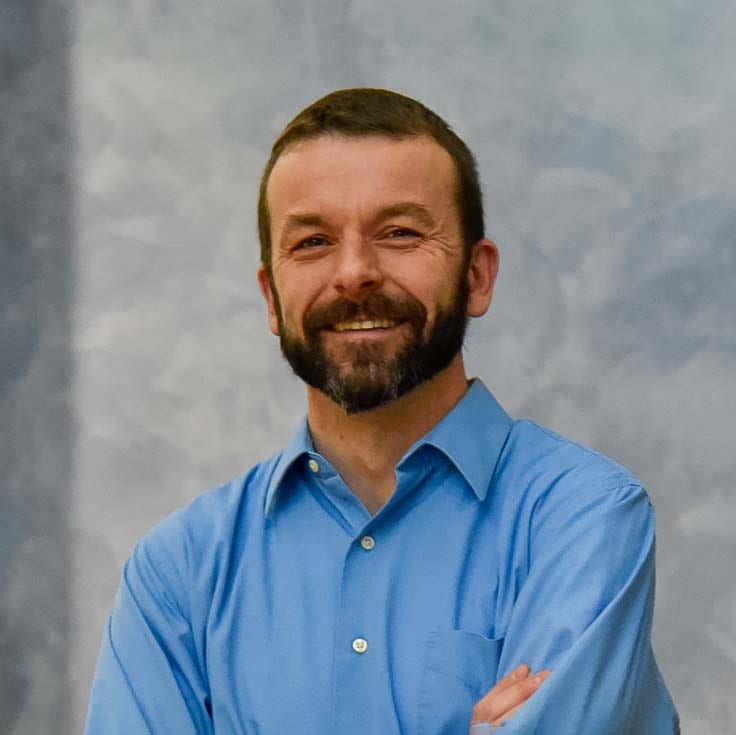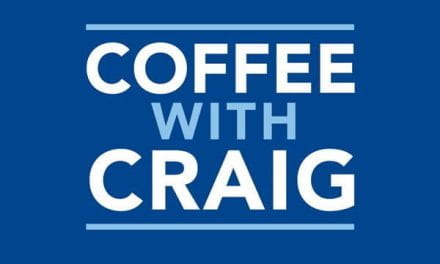Speech, Language and Hearing Clinic: A Legacy of Service
Note: This story was originally written in spring 2023.
Julia Lowe, a happy, six-year-old kindergarten student in State College, loves connecting with other people.
“She’s a firecracker, a spark plug,” said her father, Kevin Lowe. “My wife and I are both quite introverted, but from the beginning of her life—even when communication was really difficult for her—Julia has always found a way to connect with other people.”
Julia was diagnosed with a developmental delay and did not develop typical expressive language skills as a baby or toddler. A speech language pathologist worked with Julia to address the delay, and by the age of three Julia was using a lot of sign language but very little speech. On the recommendation of her speech language pathologist, Julia’s parents enrolled her in individual therapy and the early language group at Penn State’s Speech, Language, and Hearing Clinic in the Department of Communication Sciences and Disorders.
“She’s a firecracker, a spark plug. My wife and I are both quite introverted, but from the beginning of her life—even when communication was really difficult for her—Julia has always found a way to connect with other people.”
Kevin Lowe, Julia’s Father
In the early language group, young children with challenges communicating through speech play together and work with faculty and graduate students at the clinic to develop their skills. Children in the group have a wide range of needs, but the facilitators adapt tasks and games seamlessly to each individual, according to Kevin. Through hard work by Julia and support from her parents and the Speech, Language, and Hearing Clinic, Julia now uses speech as her primary means of communication.
“I have spent a long time thinking about what we would have done without the clinic,” Kevin said. “The students and faculty there showed us how to engage Julia in speech work that made it feel more like play than work. They made all of the important skill development feel doable and intuitive.
“I loved it, and Julia loved it,” Lowe continued. “Without the clinic, I am confident that Julia’s development would be very different. I have been a stay-at-home father, and like all parents, I want to support my child’s development as best I can. When your child has a developmental delay, no one else is facing the same challenges you are. Without the clinic, I would have felt so much more alone over the last three years.”
Serving Pennsylvania and Penn State for nine decades
The clinic is one of Penn State’s longest-running outreach services. Founded in 1929 as the Speech Correction Clinic, it initially existed to address what was described at the time as the ‘defective’ speech of Penn State first-year students. One headline from a 1931 edition of the Daily Collegian about clinic testing declared, “Freshman Cannot Read Aloud Pleasantly or Intelligently, Speaking Test Reveals.”
Though speech, language, and hearing challenges are understood and discussed differently today—due to evolving cultural sensitivities and scientific advancements from Penn State and across the fields of speech-language pathology and audiology—the clinic’s commitment to service has remained constant.
Over the years, the clinic has been central to the education of more than 2,000 speech-language pathologists and audiologists. Faculty in the clinic have developed research innovations that have improved lives across the Commonwealth and around the world. Most importantly, the clinic has served as a critical resource for the people of central Pennsylvania.
“The clinic is an important resource as we prepare the next generation of clinical practitioners whose work is grounded in cutting-edge research and in engagement with the community we serve,” said Diane Williams, department head and professor of communication sciences and disorders at Penn State. “Furthermore, the clinic provides these services without respect to the ability to pay.
“Over time, the fields of speech-language pathology and audiology have grown and evolved,” Williams continued. “The Speech, Language, and Hearing Clinic has grown alongside our disciplines, and today the clinic offers many services and treatments that were unavailable a generation ago. I am very proud that our department, college, and University can offer these services to Pennsylvania, and I look forward to the clinic’s continued service and growth.”
Photo Credits
Story video sidebar: courtesy of Kevin Lowe











